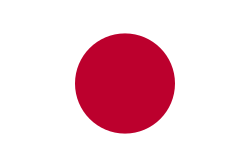| Japan at the Asian Games | |
|---|---|
 | |
| IOC code | JPN |
| NOC | Japanese Olympic Committee |
| Medals Ranked 2nd |
|
| Summer appearances | |
| Winter appearances | |
Japan has competed at the Asian Games since their inception in 1951, held in New Delhi, India. The National Olympic Committee of Japan, Japanese Olympic Committee, is responsible for organizing Japan's participation in the Asian Games. The Committee was established in 1911 and recognized by the International Olympic Committee in 1912; it is also the oldest Asian National Olympic Committee. [1] [2] Japan has a distinguished achievement among all Asian sport teams, being the only one to have won at least 20 gold medals at every Asian Games.
Contents
- Asian Games
- Medals by Games
- Medals by sport
- Medals by individual
- Asian Winter Games
- Medals by Games 2
- East Asian Games
- Medals by Games 3
- East Asian Youth Games
- Medals by Games 4
- Asian Indoor and Martial Arts Games
- Medals by Games 5
- Asian Beach Games
- Medals by Games 6
- Asian Youth Games
- Medals by Games 7
- Asian Para Games
- Medals by Games 8
- Sports
- Asian Youth Para Games
- Medals by Games 9
- See also
- References